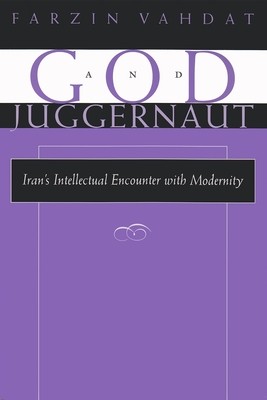
- We will send in 10–14 business days.
- Author: Farzin Vahdat
- Publisher: Syracuse University Press
- ISBN-10: 0815629478
- ISBN-13: 9780815629474
- Format: 16 x 22.6 x 1.7 cm, softcover
- Language: English
- SAVE -10% with code: EXTRA
Reviews
Description
Farzin Vahdat has written a trenchant analysis of the intellectual discourse of modernity in Iran. Although there have been several recent studies about Iranian intellectuals, this volume is unique in that it focuses almost entirely on intellectual discourse among the clergy.
Vahdat first provides us with a solid foundation for understanding the key Critical Theory concept of subjectivity--especially as expounded in the writings of Jurgen Habermas. Then, he successfully shows how one Western philosophical approach does have universal applicability by demonstrating the concern of Iranian theorists such as Shariati, Motahhari, Khomeini, and Sorush with human subjectivity. By engaging the major theoretical discourses of modernity, the author attempts for the first time in a non-Western context to address some of the central theoretical issues involved in, modernity and Iran's experience of these issues. As such, this study can contribute to a profound understanding of modernity and its development in a Middle Eastern context. This book is an important addition to the growing body of work in Global Studies and Critical Theory as well as on contemporary Iran.EXTRA 10 % discount with code: EXTRA
The promotion ends in 18d.08:58:57
The discount code is valid when purchasing from 10 €. Discounts do not stack.
- Author: Farzin Vahdat
- Publisher: Syracuse University Press
- ISBN-10: 0815629478
- ISBN-13: 9780815629474
- Format: 16 x 22.6 x 1.7 cm, softcover
- Language: English English
Farzin Vahdat has written a trenchant analysis of the intellectual discourse of modernity in Iran. Although there have been several recent studies about Iranian intellectuals, this volume is unique in that it focuses almost entirely on intellectual discourse among the clergy.
Vahdat first provides us with a solid foundation for understanding the key Critical Theory concept of subjectivity--especially as expounded in the writings of Jurgen Habermas. Then, he successfully shows how one Western philosophical approach does have universal applicability by demonstrating the concern of Iranian theorists such as Shariati, Motahhari, Khomeini, and Sorush with human subjectivity. By engaging the major theoretical discourses of modernity, the author attempts for the first time in a non-Western context to address some of the central theoretical issues involved in, modernity and Iran's experience of these issues. As such, this study can contribute to a profound understanding of modernity and its development in a Middle Eastern context. This book is an important addition to the growing body of work in Global Studies and Critical Theory as well as on contemporary Iran.

Reviews